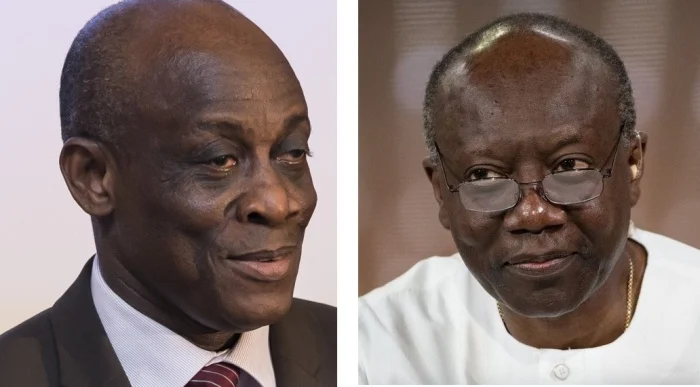Seth Terkper shares Ofori-Atta’s hope of Ghana reaching a debt deal with creditors by end of next week
“My hope is that by the end of next week we’ll have what we need,” Ofori-Atta said. “One of the key issues is the cut-off date and ensuring that there is comparability of treatment.”
Former Finance Minister, Seth Terkper, has expressed hope of Ghana reaching a debt restructuring agreement with the Official Creditor Committee (OCC) co-chaired by France and China by the end of next week.
Failure to secure a deal, the erstwhile Finance Minister noted will jeopardize inflows from the IMF and World Bank.
“I hope we can avert not reaching a deal with the creditors, otherwise unless we get some waiver, flows from the IMF and World Bank will be in jeopardy and we will still be locked out of the international capital market.
“I hope Government will rally and meet the required conditions, so we can get over this current economic challenges,” he noted.
Mr Terkper made the above assertion while speaking during the NorvanReports and Economic Governance Platform X Space Discussion on the 2024 Budget on Thursday, November 30, 2023.
Finance Minister Ken Ofori-Atta said on Thursday that he was confident the country would reach a restructuring deal with its official creditors by the end of next week.
The “cut-off date” – the date after which new loans will not be restructured – and the comparability of treatment between creditors are the major outstanding issues, Ofori-Atta told reporters, adding that any cut-off date would be fine for Ghana.
“My hope is that by the end of next week we’ll have what we need,” Ofori-Atta said. “One of the key issues is the cut-off date and ensuring that there is comparability of treatment.”
Ghana defaulted on most of its external debts in December 2022, after it was locked out of international capital markets and its debt costs spiralled out of control, exacerbating an economic crisis in which its currency slid and inflation soared.
It needs to reach a restructuring deal with its official creditors to secure the International Monetary Fund executive board’s approval for the next $600 million payout from a $3 billion rescue loan.
The official creditors, who hold about $5.4 billion of Ghana’s $20 billion external debt that is being restructured, were considering dates in March 2020 and December 2022, Reuters reported in September.
While Dec. 31, 2022 is close to when Ghana defaulted, March 24, 2020 was being considered as a cut-off date because that was when the G20 introduced its debt service suspension initiative (DSSI) to help the world’s poorest countries cope with the fallout of the COVID-19 crisis, two sources said at the time. Ghana did not participate in the DSSI.
“We can manage either way. So the issue is (for) the membership of the OCC to get comfortable with how it impacts them,” Ofori-Atta said when asked if there was a date that Ghana preferred.
“Everybody is looking at comparability of treatment and China and France, certainly are the (official creditor committee) co-chairs, so they have a good impact on what will happen,” he added.


